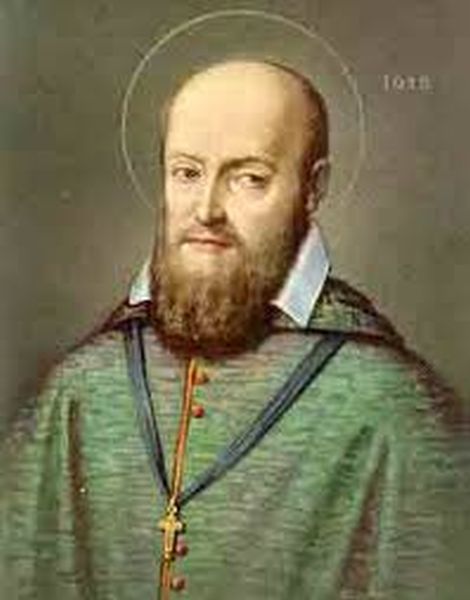Lent and fast
This Lent offers us an opportunity to think about the traditional three means of asceticism which almost all religions teach to their followers: fasting, prayer and the giving of alms. It is also interesting to remembering that, during his entire life, Saint Yves practiced them all with equal rigor and with impressive achievement. What, then, does his example teach us? And, what traps should we avoid in these matters? After all, saints are canonized in order to offer us examples of lives that are totally given to God.
 Fasting shows our ability to control our most basic impulse: the instinct to survive. Animals only struggle for food and reproduction, which is for self-preservation and perpetuation of the species. Actually, human beings can fight for many other things, even though they have everything they need to live. However, a human being is far more worthy that its animal side. We all are invited to control our basic instincts, which is very important in our consumer societies; for, as a modern philosopher has written, “I consume therefore I am”, which means that I only exist because I consume.
Fasting shows our ability to control our most basic impulse: the instinct to survive. Animals only struggle for food and reproduction, which is for self-preservation and perpetuation of the species. Actually, human beings can fight for many other things, even though they have everything they need to live. However, a human being is far more worthy that its animal side. We all are invited to control our basic instincts, which is very important in our consumer societies; for, as a modern philosopher has written, “I consume therefore I am”, which means that I only exist because I consume.
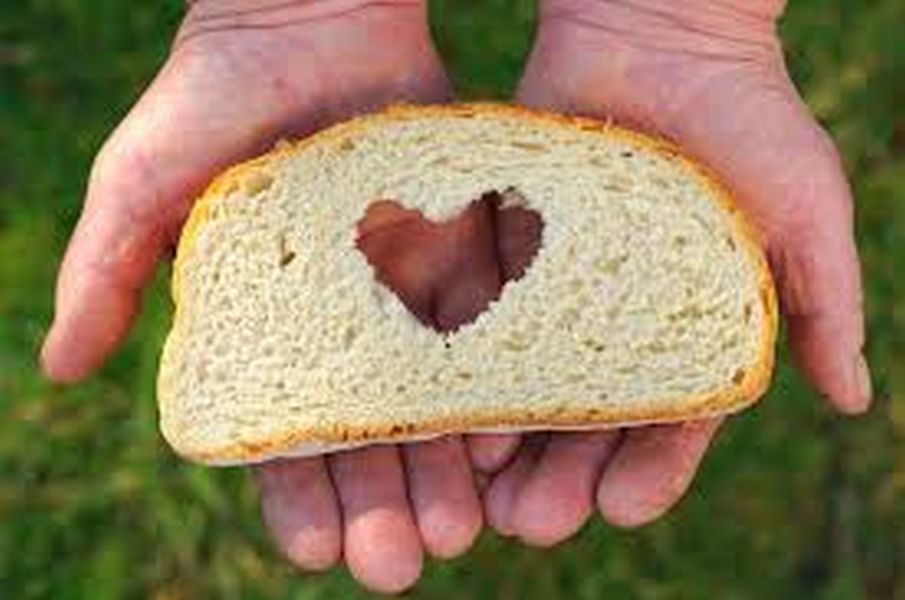 All this leads us to understand that fasting allows us to experience the loss, discovering that, beyond food, the Lord of Life feeds us. It helps us to discover our fragility, also. It is a path to return to what is really essential and for accepting our limits. So, from the deepest part of our limited being, we invoke the Lord, our God. Fasting leads us to realize our own weakness and to become more understanding and sympathetic towards other peoples weaknesses, and by the end, be more merciful. In effect, fasting opens us to solidarity with all of our brothers and sisters. We are not going to overrule hunger in the world, nor poverty, nor injustice, but we are going to express that hunger in the world, poverty and injustice affect us deeply. They affect us enough that we willingly choose to bind us to all those who go to bed with an empty stomach every night. Showing compassion makes more available to our neighbor. This is what is meant by the expression the Communion of Saints: the spiritual communion between all those who believe in God.
All this leads us to understand that fasting allows us to experience the loss, discovering that, beyond food, the Lord of Life feeds us. It helps us to discover our fragility, also. It is a path to return to what is really essential and for accepting our limits. So, from the deepest part of our limited being, we invoke the Lord, our God. Fasting leads us to realize our own weakness and to become more understanding and sympathetic towards other peoples weaknesses, and by the end, be more merciful. In effect, fasting opens us to solidarity with all of our brothers and sisters. We are not going to overrule hunger in the world, nor poverty, nor injustice, but we are going to express that hunger in the world, poverty and injustice affect us deeply. They affect us enough that we willingly choose to bind us to all those who go to bed with an empty stomach every night. Showing compassion makes more available to our neighbor. This is what is meant by the expression the Communion of Saints: the spiritual communion between all those who believe in God.
A Christians fast strengthens in each of us the desire to reach communion with the bridegroom of Humankind: Jesus Himself. We must note that, in the Gospel, Jesus explains that His disciples, the Christians, should give a new and complete significance to fasting. For us, fasting shows that nothing, even more, no one can satisfy our deepest desire, if not Him! … As well as the bride wants to stay with her beloved. Indeed, the human being is, first of all, a being of desire. He cannot merely satisfy his natural needs (to eat, to drink, to sleep, to reproduce, …), or even the characteristic human need (to learn, to develop its talents, to be given responsibilities, …). What matters for him is to be loved and respected. But only God, whose true face is revealed by Christ, can love us unconditionally.
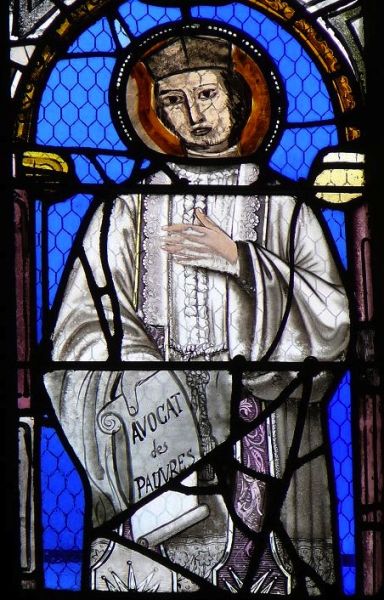 Talking about fasting, Saint Yves’ life has something to tell us. Yves experienced such a passion for God that he could not keep from seeking Him. Speaking of his personal diet, several witnesses said that Saint Yves contented himself with rough bread and never ate neither meat nor fish. He never drank wine or any alcohol and ate only one meal a day, except on Sundays, when he had a light dinner. One witness said that he ate two eggs at Easter… to celebrate! But on the average day, he ate boiled vegetables without any of dressing. It is no surprise that his austere lifestyle impressed so many of his fellowmen!
Talking about fasting, Saint Yves’ life has something to tell us. Yves experienced such a passion for God that he could not keep from seeking Him. Speaking of his personal diet, several witnesses said that Saint Yves contented himself with rough bread and never ate neither meat nor fish. He never drank wine or any alcohol and ate only one meal a day, except on Sundays, when he had a light dinner. One witness said that he ate two eggs at Easter… to celebrate! But on the average day, he ate boiled vegetables without any of dressing. It is no surprise that his austere lifestyle impressed so many of his fellowmen!
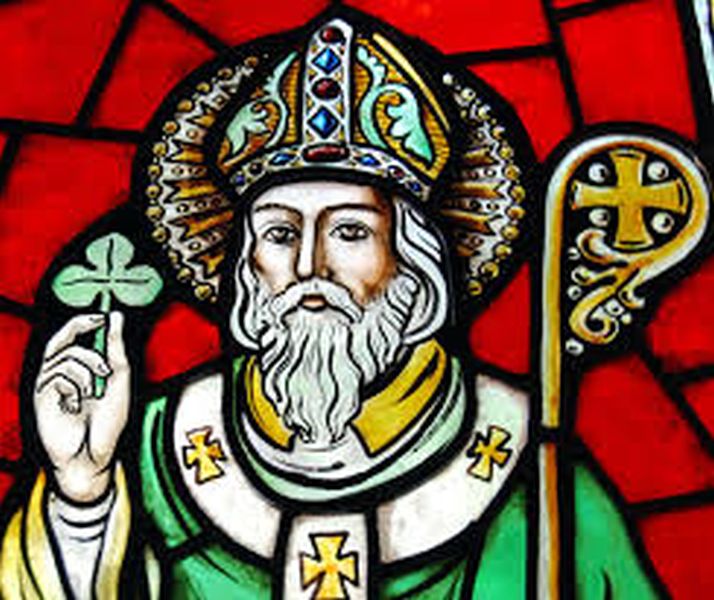
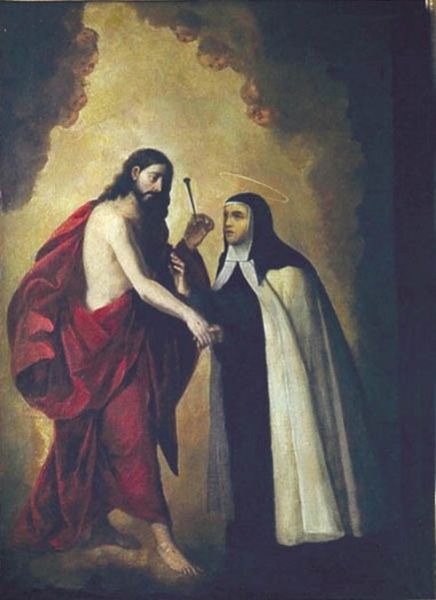 It is necessary, however, to stress that this austere way of life is not the reason for Saint Yves’ canonization. What is interesting is that his extreme asceticism shows a great desire in him to keep dwelling in God’s presence. Nothing could prevent him from seeking God in his life. In the same way, Saint Francis of Assisi ate what he found in the trash; nevertheless, once, at night, out of pity, he woke all his brothers up to share some food because he had heard one of them moaning with hunger while sleeping… In the same way, Saint Bernard was said to be so ascetic that one could see right through him! Saint Patrick, saint Colombano, saint Bruno, saint Theresa of Avila were famous for their asceticism also.
It is necessary, however, to stress that this austere way of life is not the reason for Saint Yves’ canonization. What is interesting is that his extreme asceticism shows a great desire in him to keep dwelling in God’s presence. Nothing could prevent him from seeking God in his life. In the same way, Saint Francis of Assisi ate what he found in the trash; nevertheless, once, at night, out of pity, he woke all his brothers up to share some food because he had heard one of them moaning with hunger while sleeping… In the same way, Saint Bernard was said to be so ascetic that one could see right through him! Saint Patrick, saint Colombano, saint Bruno, saint Theresa of Avila were famous for their asceticism also.
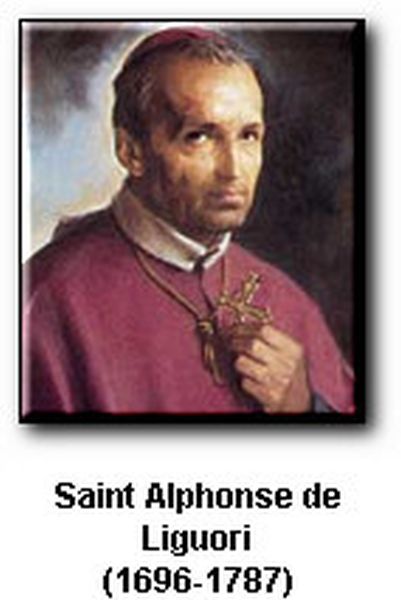 Nonetheless, many other saints, such as Alphonse of Liguori or Francisco of Sales, have warned of the major danger for asceticism: spiritual pride. Indeed, there is a peril in fasting: trying to prove one’s superiority over all those who cannot control their instincts. There is even a famous sentence about the nuns of Port Royal Abbey in Paris: they were said to be “pure as angels and proud as demons.”
Nonetheless, many other saints, such as Alphonse of Liguori or Francisco of Sales, have warned of the major danger for asceticism: spiritual pride. Indeed, there is a peril in fasting: trying to prove one’s superiority over all those who cannot control their instincts. There is even a famous sentence about the nuns of Port Royal Abbey in Paris: they were said to be “pure as angels and proud as demons.”
Each of us should discover what must be his/her own ascetic effort. Actually, maybe Saint Yves was vegetarian and did not like meat nor fish… Sometimes, during Lent, there are people who should establish a more healthy way of life, including eating more regular and balanced food, in order to take care of one’s physical needs to better serve God through their brothers and sisters. The same thing can be said about sleeping. Sleeping, eating and drinking remain very symbolic matters, for the reasons that were exposed by the beginning of this train of thought: it is important to overcome animal instincts that can generate violence. In that perspective, Lent offers an ideal time to fight our bad habits such as overdrinking, smoking and all other addictions (television, excessive time spent on hobbies, …).

